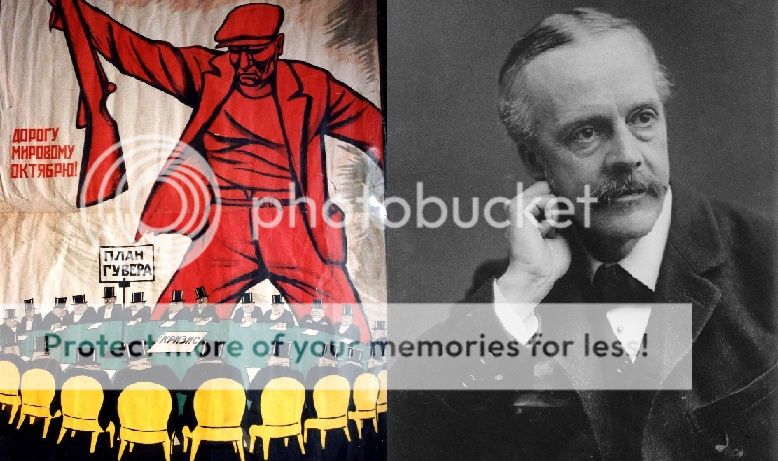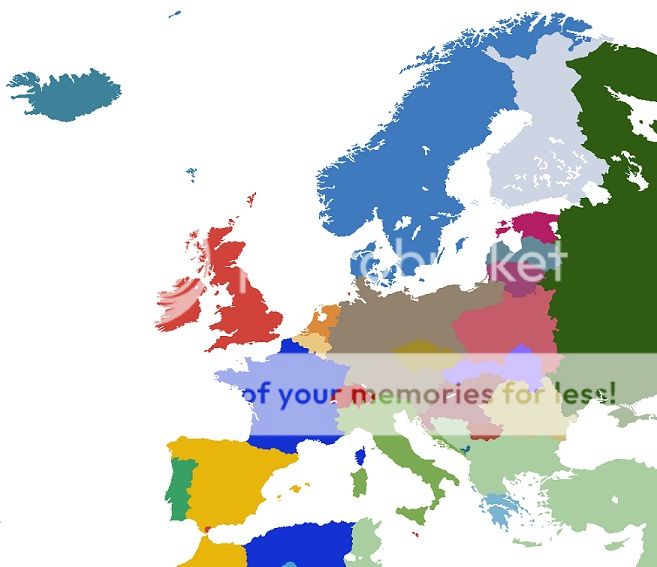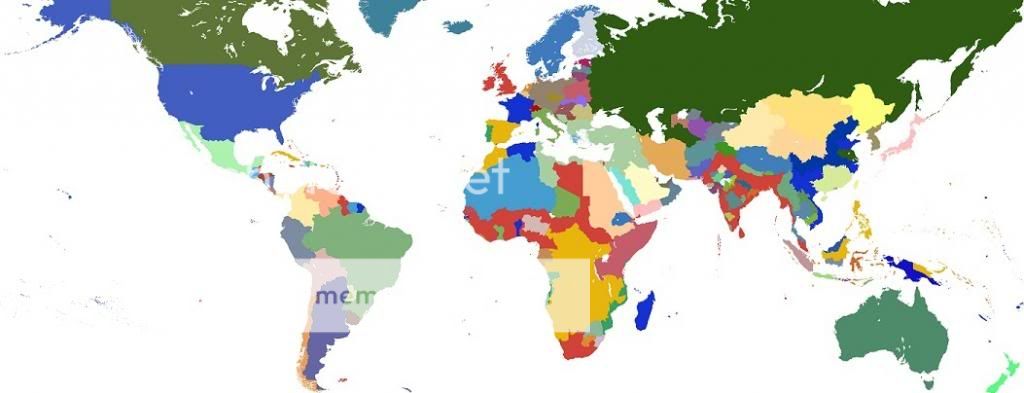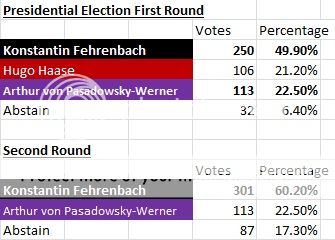1898-1903
Let the ruling classes tremble

With the proclamation of the Weimar Republic and the alliance between Socialists, Populists, Liberals and Centrists the German Revolution, and with it the struggle towards Socialism was declared to be over – or at least indefinitely on hold. Indeed, the hopes of the Socialists and Populists of at least pushing through significant social reforms were also placed on the back burner in the name of government stability and the need for fiscal discipline.
The first years after its birth marked some of the most impressive moments of the young German Republic. At the beginning of 1898 German industrial production stood at 1/3 of its pre-war level – rising to just under ½ by the election. Pre-war levels of production were equalled in 1900 and surpassed the following year with unemployment rapidly falling from the millions to a few hundred thousand as rural-urban migration continued at pace, the endless supply of labour almost impossible for industrial expansion to match. The only major cause for concern was that, despite the widespread destruction of old industries, Germany did not construct a modern industrial economy but instead invested heavily in the labour intensive but less productive industries that had punctuated the pre-war economy.
As the arts flourished there was a noticeable tendency towards moderation on the extreme ends of the Reichstag. In 1899 the DNVP appointed Bernhard von Bülow as its new leader in a move designed to prevent the secession of its Liberal wing that hoped to work with other bourgeois parties within the framework of the Republic, rather than set the party up as a pariah. This move on the part of the DNVP greatly mitigated the threat to the Republic from the right. On the left the situation was rather different. With the revolutions abroad spreading and radicalising the USPD, not to mention the myriad of sects to its left, received an upsurge in membership and support. However, events both abroad and within Germany was leading much of the USPD’s leadership on a rightward trend – denouncing the revolutionary movements to the North and West of Germany and calling for caution within the Republic itself.

Just as Germany was moving towards internal stability, events abroad were growing far more serious. In the aftermath of the Great War revolutionary regimes had seized power in Belgium, Denmark, the Netherlands, Germany and Poland. In the latter two states the revolutions started to calm down within a couple of years of the war – in the former three they radicalised. In Belgian the renamed Revolutionary Workers’ Party had sought to expropriate all large scale industry and immediately move towards the construction of socialism – Dutch socialists looking on with eager eyes. With British backing the French invaded Belgium in April 1900 following the catastrophic failure of internal forces to bring down the regime. To the North, the Netherlands was still ruled by a coalition of Revolutionaries – although the left wing of the Social Democratic Party was growing increasingly powerful and extreme.
In Denmark, the Social Democratic Party came to power in early 1898 and looked to ape their Belgian comrades in nationalising major industries and reconstructing the political system. The following year their sister party – the Norwegian Labour Party – successfully overthrew the Franco-British backed monarchical autocracy. In this atmosphere of excitement representatives of the Norwegian Labour Party, the Danish Social Democratic Party and the left wing of the Swedish Social Democratic Party came together in Copenhagen on September 3rd 1899 to proclaim the United Socialist Republic of Scandinavia, and unify their three parties into the Communist Party of Scandinavia – the three marking a clear break with reformist social democracy. The prospect of a new, Communist, Great Power emerging in Northern Europe was a terrifying prospect for many – Britain quickly moved to send troops to aid Norwegian and Swedish counterrevolutionaries.
In the East the Russian Empire descended into civil war. With the pressure on the regime growing stronger each day the Imperialist government had offered to hold elections – however when it became clear that even under a weighted franchise anti-Tsarist groups were likely to win a majority the elections were cancelled. With much of the Russian countryside in revolt since the Great War a coalition of the Social Revolutionaries, Social Democrats and Liberals formed a provisional democratic government and formed an army with which to overthrow the Tsar. With Greater Russia in revolt the long oppressed peoples on the Empire’s Western fringe rose against the state with Poland, Finland and the Baltic states (including Konigsberg) rising. With these twin threats the Imperial government fled from Petrograd to Moscow.

As Germany maintained strict neutrality in the conflicts raging across Europe – the government not wishing to arouse passions just as the working class seemed to be leaving its revolutionary dreams behind – the international revolution made a number of unexpected leaps forward. In Belgium the French had been expected to crush the revolutionary regime wish ease – however, it has always been true that revolutions can win unwinnable wars even as they cause unprecedented conflicts. Through the late spring and summer the French successfully captured much of Wallonia – but at an immense cost as the Belgians were able to mobilise a very significant part of their population and were supported by volunteers from the Netherlands and even some from Scandinavia. However, even then the French had clear numerical advantages – it would be a series of soldier mutinies at the front and solidarity strikes at home that forced the French Republic into a humiliating reversal. Despite the best efforts of the government and press, the war in Belgium had been amongst the most unpopular conflicts in French history, coming so soon after the Great War and directed against a regime that enjoyed an impressive degree of popularity with large sections of the French public. In November 1900 France withdrew from Belgium, the revolution in Brussels had been saved.
To the North the Scandinavians were able to strike out from Stockholm, Oslo and Denmark into the territories in the hands of the counterrevolutionaries – outnumbering their opponents by several orders of magnitude the civil war in Scandinavia was over by early 1901. Finally, in Russia the revolutionaries took Moscow, after a long struggle, in June 1901 – proclaiming a Russian Republic as the Tsar fled to join loyalist forces in the Ukraine.
 DNVP leader von Bülow
DNVP leader von Bülow
By mid-1901 Europe was once again a scarcely recognisable place as another round of radical changes swept the continent. Within Germany there was a newfound stability and tacit acceptance of the Republic even from its strident opponents as the economy went from strength to strength in its recovery. By this stage German debt was plummeting whilst taxation was also easing. Externally, of the four European states that could maintain genuinely continental pretensions to power – France, Britain, Germany and Russia – the Russians had been humbled by Civil War, the French discredited by the catastrophes in Wallonia, the Germans frozen out of the international arena and the British proved unwilling to commit sufficient resources on their own to hold back the tides of revolution. The stage was set for Germany to re-assert herself on the world stage.
The alliance grand alliance of the Weimar coalition had always been seen as a fragile necessity in the pressing situation of the Republic’s foundation in 1898. As conditions within Germany had eased the coalition’s left under the SPD and FVP and grown increasingly distant from the right under the DDP and DZP. As the left demanded social reforms the right dragged its feet, as the right called for a tough stance internationally against social revolution the left called for neutrality, the alliance had become so fraught with tension that its collapse seemed inevitable. In August 1901 the DDP and DZP made a dramatic break with their left wing allies and invited von Bülow’s DNVP into a government headed by Eugen Richter. In the confusion the left parties claimed that this amounted to a vote of no confidence in the government – which would have required a new round of elections under the constitution. Unwilling to risk elections President Fehrenbach ruled, unsurprisingly, in favour of the DDP-DZP-DNVP alliance which assumed power.

This major shift at the head of German government – which placed an explicitly anti-revolutionary government in power – was to have major repercussions internationally. In September 1901 the Third International was founded in Copenhagen. Although the USPD attended it refused to accept the conditions of membership without a party congress. Amongst the parties to join the international were the Revolutionary Workers’ Party of Belgium, the Social Democratic Party of the Netherlands, the French Section of the Workers’ International and a small faction of the Russian Social Democratic Party under Vladimir Lenin. All parties had to reorganise their structure, rename themselves as the Communist Party and adopt a new, militant stand.
With Germany now standing against and increasingly well organised international revolutionary movement, British Prime Minister Arthur Balfour decided to open up diplomatic channels to the German Republic. With neither France nor Russia possessing the capability or willingness to form a strong bulwark against revolution, Germany was identified as the only force capable of ending the spread of the contagion. With the British promising to support Germany in the re-conquest of Konigsberg (effectively independent of Russia since early 1900 as the Republic of Prussia), the establishment of a large sphere of German influence in Eastern Europe and revisions to aspects of the Versailles Treaty – most notably the limits on the size of the armed forces.

Following the re-conquest of East Prussia, beyond Lithuanian occupied Memel, in late 1901 Germany began to funnel weaponry into the hand of non-socialist Baltic and Polish revolutionaries as they aimed to join with the British in pressurising the Russians into a peace treaty with the states on the Western frontier. This was a success as the Russian Republic, still fighting the White armies of the Tsar, accepted the independence of Poland, Lithuania, Latvia, Estonia and Finland.
 Thorvald Stauning (Left), Hjalmar Branting (Right)
Thorvald Stauning (Left), Hjalmar Branting (Right)
As the era of revolutionary outbursts appeared to be winding down in the Netherlands the Communist Party secured an absolute majority in an election in early 1902 – establishing a Socialist Republic – whilst in Finland the Scandinavian baked Reds secured victory, leaving another Communist Party in power. In Germany the USPD headed towards its Halle Congress in October 1902, a full year after the founding of the Third International, sorely divided between a revolutionary left and a reformist right. As the two arms of the movement clashed two men from Scandinavia arrived in Germany – the committed Danish Communist leader Thorvald Stauning, and the Swedish right Social Democrat and opponent of the Communist regime Hjalmar Branting. As the two Scandinavians implored the USPD delegates at the congress to either spurn the Third International or join it the left won a decisive victory at a 2/3s majority voted in favour of joining. With the right declaring the expulsion of all those who had voted to join the Third International they would reunify with the SPD by the end of the year. The Left of the USPD was to form the backbone of the new Communist Party of Germany (KPD) which also contained a pre-existing (but almost entirely Berlin based) KPD, a Revolutionary Workers’ Party of Germany (initially inspired by the Belgian Revolution), a Communist Workers’ Party of Germany and several other groups.

The revolutionary wave was not entirely limited to effecting Europe. Every single one of the small Central American Republics had experienced ostensibly anti-American revolutions which produced a myriad of different regimes – Communist affiliated parties achieving power in El Salvador and Costa Rica. In the East Indies the creation of a Socialist Republic in the Netherlands in 1902 led to a mixed British, French and Spanish effort to coerce and encourage colonial governments into revolt against the metropolitan government.













